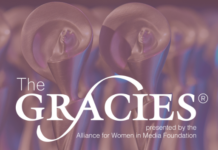
With the American Music Fairness Act out of gas in Congress, the musicFIRST Coalition has turned its attention to another area – the reinstatement of the FM portion of the Radio Duplication Rule. They say the rule’s elimination has decreased programming diversity.
REC Networks, Future of Music Coalition, and musicFIRST recently held a virtual meeting with Deena Shetler from the office of FCC Commissioner Anna Gomez on the matter, according to a filed document.
They argue that the 2020 elimination of the Duplication Rule has allowed corporate radio owners to monopolize the spectrum, which they believe goes against the Administrative Procedure Act due to the lack of notice and opportunity for public comment. musicFIRST notes the elimination encouraged, “Corporate radio owners to hoard spectrum.”
The original rule aimed to prevent identical or substantially similar programming on multiple stations within the same market if the stations had common ownership or were associated with each other. Its removal, according to musicFIRST, has negatively impacted the variety of content available to listeners and stifled competition among FM station owners.
They noted that previously, waivers to this rule were an effective solution, rendering the change unnecessary.
Additionally, the meeting touched upon the FCC’s Notice of Proposed Rulemaking to incentivize broadcast radio and television stations that dedicate at least three hours a week to locally originated programming. The trio of organizations support the initiative as a step toward recognizing and rewarding broadcasters who contribute to local content creation, whether through news, information, or music, while saying three hours a week is a minimal threshold.
There was no mention of FCC Chairwoman Rosenworcel’s comments from that NPRM on the efficacy of the Main Studio Rule that has led to







Music First, of course, wants to impose yet another set of fees on radio broadcasters by requiring stations to pay performance rights–in addition to what we pay composers. The problem for radio is both the decline in advertising–and the accumulation of leeches weakening the business.
Most in market simulcasts are AM-FM news talk stations. E.G. WBBM and WCFS, KYW and WPHI. I suspect that without the simulcast both AM stations would be showing a ratings decline.
We purchased an AM in our small market 3 1/2 years ago–$30K and we had to move the tower. But we got two translators in the deal, and that station is profitable because of the FM coverage. Granted, two translators which by law must simulcast the AM. However, in a less compact market two small FM’s with some signal overlap would make one viable station.